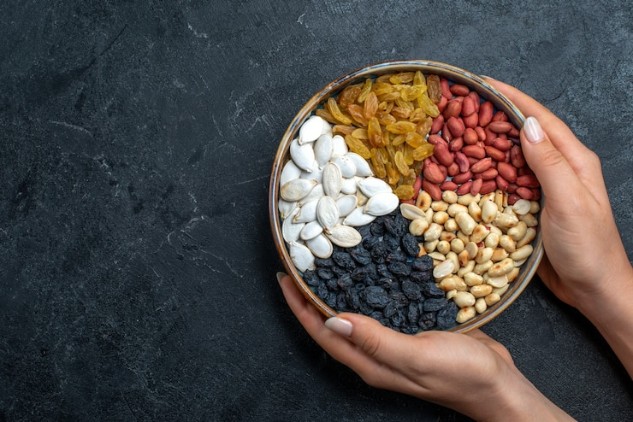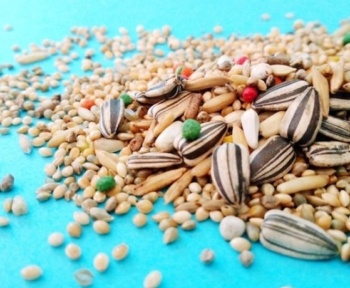Introduction
Dried fruit has existed for centuries, and it’s easy to see why. It’s a convenient snack that’s portable, non-perishable, and gives you that sweet fix when you’re craving something sugary. But with so many health trends out there, you might wonder: Is dried fruit as good for you as it seems?
In this guide, we’ll dig into the benefits and drawbacks of dried fruit so you can decide whether it’s worthy of a spot in your pantry.
What is Dried Fruit?
Dried fruit is essentially just fresh fruit with all the water sucked out of it. The drying process shrinks the fruit and concentrates all the sugars, fiber, and nutrients into a much smaller serving. Sounds pretty awesome. But there’s a catch—it means the fruit becomes more calorie-dense.
For example, a small handful of raisins can pack the same calorie punch as fresh grapes. So, while dried fruit is loaded with nutrients, you’ll want to watch your portions.
Table: Common Dried Fruits and Their Drying Methods

Knowing how your dried fruit is made can help you make better choices—because some methods preserve more nutrients than others.
Nutritional Value of Dried Fruits
Let’s talk numbers. Dried fruit is super nutrient-dense because the drying process concentrates everything. A small serving can give you a lot of nutrients—so it’s easy to get more than your fair share of vitamins and minerals in just a few bites.
But here’s the thing: While dried fruit is high in fiber, vitamins, and minerals, it’s also packed with calories and sugar. So while it’s good for you, going overboard is easy if you’re not careful.
Key Nutrients in Dried Fruits:
- Fiber: Keeps you regular and helps you feel full longer.
- Vitamins: Dried fruits are often rich in vitamins A, C, and K—good for immunity, skin health, and general well-being.
- Antioxidants: Help protect your cells from damage.
- Minerals: Full of potassium, magnesium, and iron—all vital for muscle function and blood pressure.
Table: Dried Fruit vs Fresh Fruit Nutritional Comparison

So, while dried fruit is more calorie-packed, it’s also loaded with good stuff for you. The key is moderation.
Health Benefits of Dried Fruit
So, is dried fruit good for your health? Yes, but like anything, it’s best in moderation. Let’s dive into the benefits:
1. Digestive Health
Suppose you’ve eaten a handful of dried prunes and had too much movement in your system afterward. In that case, you already know that dried fruit can work wonders for digestion. The high fiber content helps keep things moving, while natural sugars (like sorbitol) can help prevent constipation.
2. Heart Health
Dried fruits like raisins and dates are excellent sources of potassium. Potassium helps regulate blood pressure and supports heart health—making dried fruits a healthy snack.

3. Weight Management
The fiber and natural sugars in dried fruit help fill you up without making you feel bloated. It’s a great snack when you’re hungry between meals, but keep portion sizes in check because it’s easy to eat more than you should.
4. Energy Boost
Need a quick pick-me-up? Dried fruits are packed with natural sugars, making them a great energy source for pre-or post-workout snacks. A few dates or raisins can provide a natural burst of energy when needed.
Potential Risks of Dried Fruit
Dried fruit is healthy, but that doesn’t mean it’s perfect. It comes with its own set of downsides, and it’s good to be aware of them:
1. High in Calories
Because dried fruit is so concentrated, it’s easy to overeat. A tiny serving might be equivalent to a much bigger serving of fresh fruit. A small handful of dried fruit can quickly add up to many calories, so monitoring your portion sizes is essential.
2. Added Sugars and Preservatives
Some dried fruits are sweetened with extra sugar or treated with preservatives like sulfur dioxide to help them stay fresh longer. While this can make them taste extra yummy, it also adds unwanted sugar and chemicals. Always check the label to ensure you’re not getting any unnecessary additives.

3. Dental Health
Let’s face it—dried fruit sticks to your teeth. And that’s not great news for your dental health. The sugars can cling to your teeth, creating a perfect environment for cavities. To keep your pearly whites healthy, brush your teeth after snacking on dried fruit.
Steps to Avoid Risks:
- Look for dried fruit with no added sugar or preservatives.
- Stick to about ¼ cup of dried fruit per serving.
- Brush your teeth after eating dried fruit.
How to Add Dried Fruits to Your Diet
Dried fruits are easy to work into your diet. They’re so versatile! Whether you want a quick snack, a topping for your oatmeal, or an ingredient in a recipe, there are many ways to enjoy them.
Snack on Dried Fruits:
Dried fruit is perfect as a quick, portable snack. A handful of raisins, cranberries, or figs can satisfy you during that mid-afternoon slump. Pair them with a handful of nuts for a filling snack that packs a nutritional punch.
Top Dried Fruit Recipes:
- Dried Fruit Granola Bars: Mix oats and dried fruits like cranberries, raisins, or apricots with honey and nuts. Bake into bars, and you have a healthy, on-the-go snack.
- Dried Fruit Smoothie Bowl: Blend dried fruit like bananas and mangos with yogurt and top with fresh fruit and granola for an energizing breakfast.
- Dried Fruit Salad: Toss dried apricots, figs, and raisins into a fresh green salad to add a sweet twist and some extra nutrients.
Best Practices for Storing Dried Fruits:
Store your dried fruits in an airtight container in a cool, dry place to keep them fresh. Sunlight and heat can degrade their flavor and nutritional content, so keep them in a dark cupboard or pantry.
Are Dried Fruits Good for Specific Diets?
Depending on your diet, dried fruits can be a great fit or something you must enjoy in moderation.
Vegan and Plant-Based Diets:
Dried fruits are naturally vegan, making them a great snack option for those following plant-based diets. They’re easy to incorporate into smoothies, baked goods, or a trail mix.
Gluten-Free Diets:
Most dried fruits are naturally gluten-free but always check the label. Sometimes, they can be processed in facilities that handle gluten, so it’s a good idea to ensure they’re certified gluten-free if you have sensitivity.
Low-Carb or Keto Diets:
If you’re following a low-carb or keto diet, dried fruit may not be your best snack. Dried fruit is typically high in carbs and sugars, so you should avoid it or limit your intake.
Weight Loss:
Dried fruit can fit into a weight loss plan, but portion control is key. The fiber will help keep you full, but if you’re not careful, you can quickly eat more than you should. Stick to small servings; it can be a great way to curb your sweet tooth without derailing your diet.
Interview with a Nutritionist: What Do Experts Say About Dried Fruit?
We met Emma Lewis, a nutritionist with over 10 years of experience, to get her thoughts on dried fruit. Here’s what she had to say:
“Dried fruit is a convenient and nutrient-packed snack, but it’s important to be mindful of how much you’re eating. The sugar and calorie content can add up fast, so portion control is crucial. Look for options without added sugars, and remember—moderation is key.”
Conclusion: Is Dried Fruit Good for You?
So, is dried fruit healthy? Absolutely. It’s packed with vitamins, fiber, and minerals for your health. But, like anything, it’s best enjoyed in moderation. A small handful can boost your nutrients without going overboard on calories or sugar. Be careful with portion sizes, and make sure you choose dried fruit without added sugars or preservatives.
In the end, when eaten correctly, dried fruit can be a tasty, healthy addition to your diet. Happy snacking!
FAQs
Dried fruit offers many of the same nutritional benefits as fresh fruit, like fiber, vitamins, and antioxidants. However, it’s more calorie-dense due to the water being removed during drying. This means consuming more sugar and calories in a smaller portion is easier. While both can be part of a healthy diet, moderation is key with dried fruit.
Dried fruit can be a good snack for weight loss, as it’s high in fiber, which can help keep you full for longer. However, portion control is essential because it’s more concentrated and calorie-dense. Stick to small servings to avoid overeating.
Some dried fruits are sweetened with added sugar to enhance flavor, so checking the label is always a good idea. Opt for varieties with no added sugars or preservatives to enjoy the natural sweetness of the fruit without extra calories or chemicals.
A small handful of dried fruit—about ¼ cup—is generally recommended daily. This helps you enjoy the health benefits without overloading with calories or sugar. It’s always a good idea to monitor portion sizes, especially if you’re trying to manage your weight or sugar intake.
Dried fruit can be enjoyed in moderation by people with diabetes. Still, watching the portion sizes is essential because of the concentrated sugar. Always check the label for added sugars and choose unsweetened options when possible. It’s best to consult a healthcare provider or nutritionist to determine how much-dried fruit is appropriate for your specific health needs.







